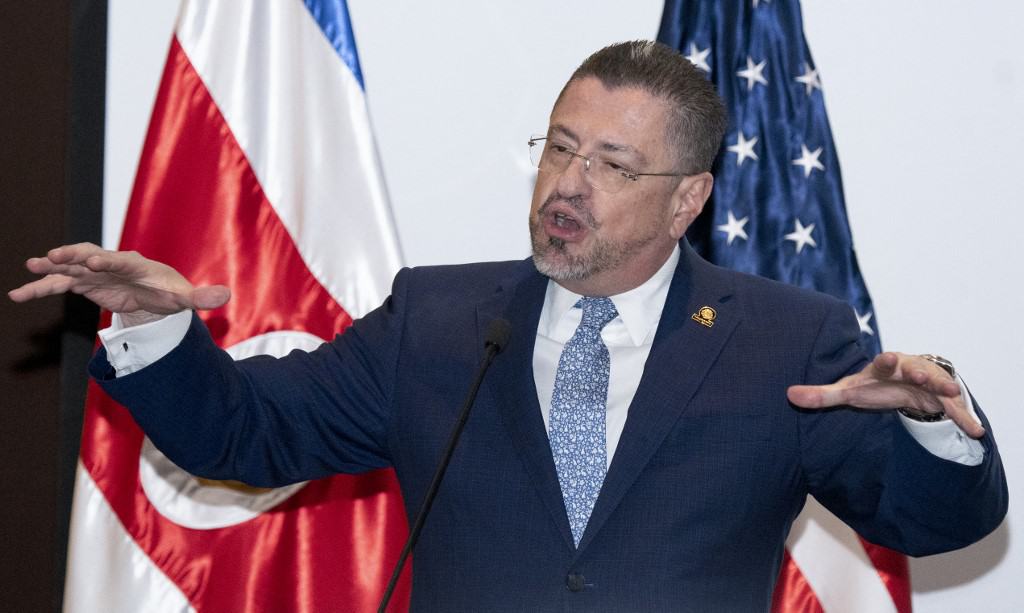President Rodrigo Chaves has intensified his public feud with the Supreme Electoral Tribunal (TSE), drawing sharp rebukes from its leadership and raising alarms about the health of Costa Rica’s democratic institutions as the 2026 elections approach.
Chaves’ latest outburst came after the TSE requested that the Legislative Assembly remove his constitutional immunity. This move aims to allow investigations into claims of political belligerence against him, a matter still under debate among lawmakers. The president responded by questioning the tribunal’s impartiality and targeting its president, Eugenia Zamora, over her past role in the administration of former President Óscar Arias four decades ago.
In his regular press conferences, Chaves has repeatedly undermined the TSE, an entity long regarded as a cornerstone of Costa Rica’s stable democracy. He once commended the tribunal during his 2022 victory, but now accuses it of silencing him through electoral rules that bar him from promoting his government’s accomplishments amid the ongoing campaign season.
The TSE fired back with a video statement and press release from Zamora. She stressed that no prior president had ever shown such disrespect toward the institution. “The national debate should center on candidates and their plans to address our country’s challenges, not on your complaints,” Zamora said in her seven-minute address. She declared it her final public response to his criticisms.
Zamora charged Chaves with eroding not just her authority but the tribunal’s overall credibility and the electoral processes it manages. “When you falsely claim bias in our decisions as electoral judges, you attack the institution’s trustworthiness, the upcoming elections, and the outcomes we will certify,” she stated. “You threaten the nation’s peace and political stability, and we cannot permit that.”
She recalled how the TSE upheld Chaves’ 2022 win, even when his party lacked enough representatives at polling stations to oversee the count. “We certified your election because it reflected the majority’s will at the polls, which we hold sacred,” Zamora added. “Since then, we have handled complaints against you fairly, always following the law.”
Chaves’ frustrations extend beyond the TSE to other Costa Rican bodies, which he blames for blocking his administration’s key initiatives. His pointed rhetoric gains added weight now, with national elections set for February 2026—just months away.
The backlash has grown. The Legislative Assembly passed a motion supporting the TSE and condemning Chaves’ “political violence,” with backing from all factions except his own. Twelve presidential candidates, including figures like Luis Amador, Boris Molina, Douglas Caamaño, and Ariel Robles, have rallied behind the tribunal, urging respect for its independence.
The government dismissed Zamora’s remarks as “lamentable” and “imprecise.” Meanwhile, public discourse on social platforms shows division, with some defending Chaves’ right to speak out and others viewing his attacks as a dangerous precedent.
This conflict unfolds against a backdrop of earlier tensions. In early October, the TSE formally urged lawmakers to lift Chaves’ immunity over 15 complaints tied to his alleged interference in electoral matters. Chaves avoided a similar immunity challenge in a corruption probe but now faces this new hurdle.
Analysts note that Chaves’ style—direct and confrontational—has marked his presidency since taking office in 2022. His administration has pushed reforms in areas like security and economy, but institutional clashes have defined much of his term.
As campaigns heat up, the TSE’s role in ensuring fair elections remains central. Zamora’s stand underscores the tribunal’s commitment to neutrality, while Chaves’ persistence highlights deepening rifts in Costa Rican politics.
The episode prompts broader questions about leadership accountability and institutional respect in one of Latin America’s steadiest democracies. With elections nearing, observers watch closely to see if this dispute escalates or prompts reconciliation.






